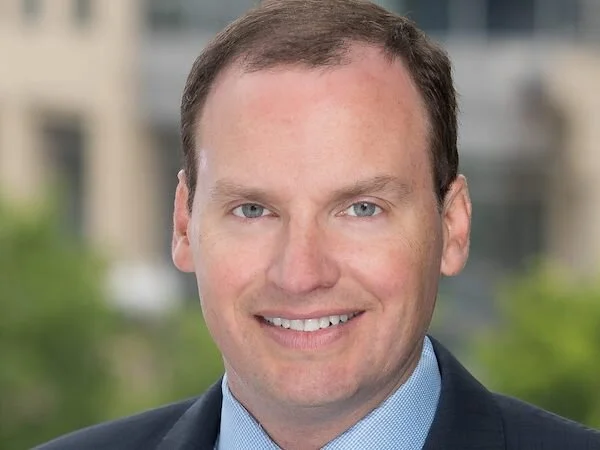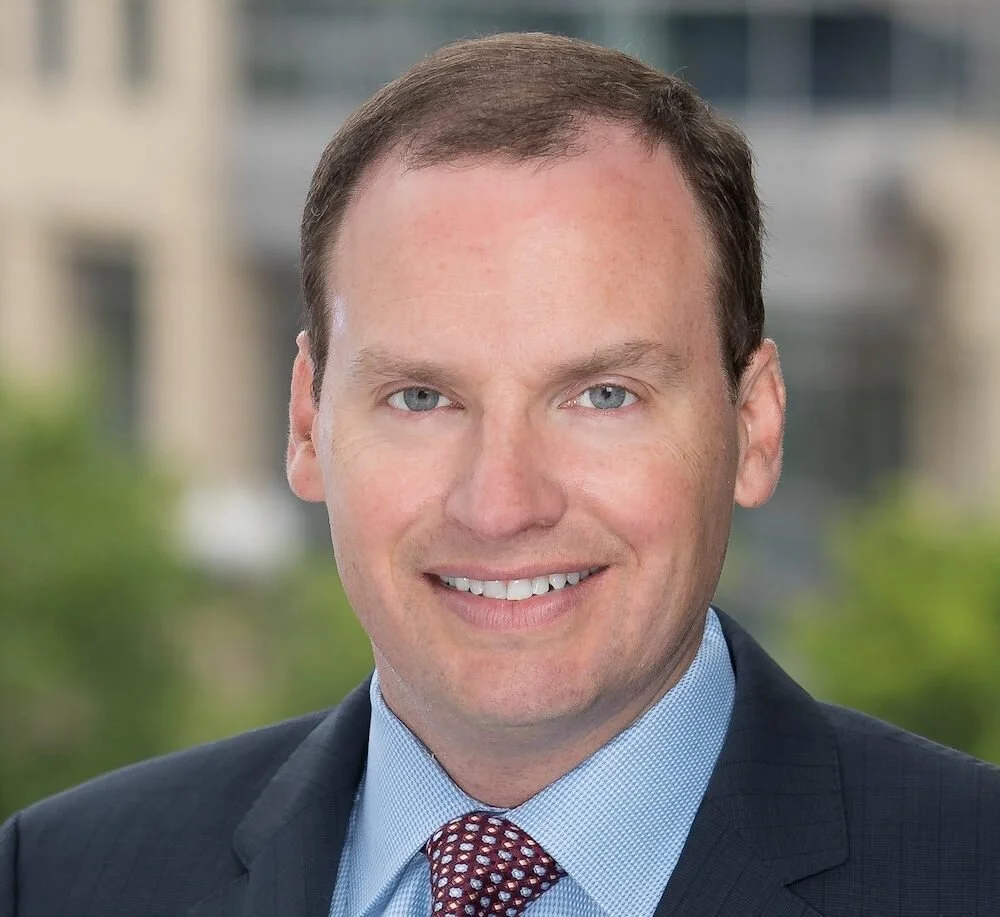Robert McNamara: "Working with diverse individuals helps you think differently about problems"
Robert McNamara leads the strategy practice at Guidehouse, a global advisory and consulting firm. As an MBA student, he participated in an exchange program at Sciences Po. In this interview, he shares his career path, the close relationships and dynamism of his role, and the importance of learning outside of the classroom. This article is part of a series of portraits published in partnership with the Sciences Po American Foundation to show the diversity of Alumni careers throughout the world and especially in the US.
This article was written by Claire Wilson, student in the dual degree program between Sciences Po and Columbia University, and intern at the Sciences Po American Foundation
Robert McNamara is a Partner Guidehouse, a global strategy, management, and technology consulting firm, and leads the Business and IT Strategy Practice. He studied abroad in an exchange program with Sciences Po when he was an MBA student at the University of Chicago. “I never had the opportunity during my undergraduate degree to study abroad,” he says, “so I really wanted to do so before beginning the next phase of my career and Sciences Po had an outstanding program.” One of his concentrations was in International Business, so the program “helped fulfill by my intellectual interest, as well as, academic requirements.”
As a Sciences Po student, Mr. McNamara particularly enjoyed classes about the European Union and both politics and business across Europe. “They were particularly interesting because it is such a dynamic political environment in the E.U., and because it helped me to understand the opportunities and challenges of working for a business that had operations across Europe.” Mr. McNamara also enjoyed courses on international government, policy and business, and participated in an independent study program on economics and investments, developing a paper about investing in startup companies across Europe.
While studying in Paris, Mr. McNamara took the opportunity to spend weekends exploring different areas of the city. With his classmates, he says, “we would walk around, talk to people, and go to restaurants, art museums, and concerts and musical venues within different neighborhoods.” He also traveled with classmates to other areas in France and Europe, with trips to the Loire Valley and London.
After returning from his exchange program and completing his MBA, Mr. McNamara went into management consulting, which he has been doing ever since, first at Accenture and now at his current firm, Guidehouse. Shortly after business school, he returned to Europe and worked for a year in Paris, London, and Amsterdam. “Within two years of finishing graduate school, I ended up working in Europe, and it was a great experience to go from being a student in Europe to having a job in Europe,” he says. “I had the opportunity to experience life abroad in a different environment, the corporate professional environment instead of the university environment, which was a highlight of my career and paved the way for continued learning.”
““Within two years of finishing graduate school, I ended up working in Europe, and it was a great experience to go from being a student in Europe to having a job in Europe””
In his current role, Mr. McNamara is responsible for the business and IT strategy practice, supporting clients across commercial and public sector industries. He finds it especially fulfilling to advise companies by “helping them solve problems and working with them to find better solutions, whether it requires developing a new strategy, changing how they are organized, adapting how they operate, developing their workforce, or identifying ways to apply technology to enable their strategy and better serve their customers.” Mr. McNamara frequently takes a structured approach to problem solving, working closely with clients and colleagues. “I think that is the part of my job I enjoy the most,” he adds, “that close working relationship with clients, learning about what they are worried about and what they are trying to achieve, and helping them, just like a doctor would help a patient.” The challenge of his role, he says, is that every client and every team he works with is different. “Clients have different challenges and are in unique situations, facing constant change, so have to adapt and tailor recommendations to the specific needs of the client and the individual characteristics of their leadership team. The dynamic element of the work makes it very interesting,” he says.
Reflecting on his time abroad at Sciences Po, McNamara affirms his appreciation for the way the program brought together people from different backgrounds—diverse individuals not just geographically, but also with diversity of experience, gender, and ethnicity. “In the classroom, you need to learn to work together,” he says, “and I think that has helped a great deal, because you have to develop empathy to be able to work well with others.” Mr. McNamara also believes Sciences Po’s combination of strong academics and diversity left a lasting imprint on him, both personally and professionally. “Working with diverse individuals helps you think differently about problems and ask better questions. It exposes you to more information than you would uncover on your own,” he adds. “That different perspective, in addition to making you a better person, also enables you to help clients and be more effective at work.” Sciences Po, he remembers, “serves as a wonderful environment to learn that lesson, with such a wide range of incredibly smart people.”
““Sciences Po is probably the safest place that you can take a personal risk, whether it is learning something different or meeting new people.””
Mr. McNamara advises current students that Sciences Po “is probably the safest place that you can take a personal risk, whether it is learning something different or meeting new people.” He encourages students to take these risks, “because you do not know what you might really enjoy until it is actually encountered. It enables a lot of personal growth, not just intellectual growth,” he adds.
In addition, Mr. McNamara reminisces about time spent with his fellow students, some he still connects with, going to cafes, sitting, and talking. “Those were fun memories, and now looking back, I appreciate how much learning goes on from just talking with other people.”




